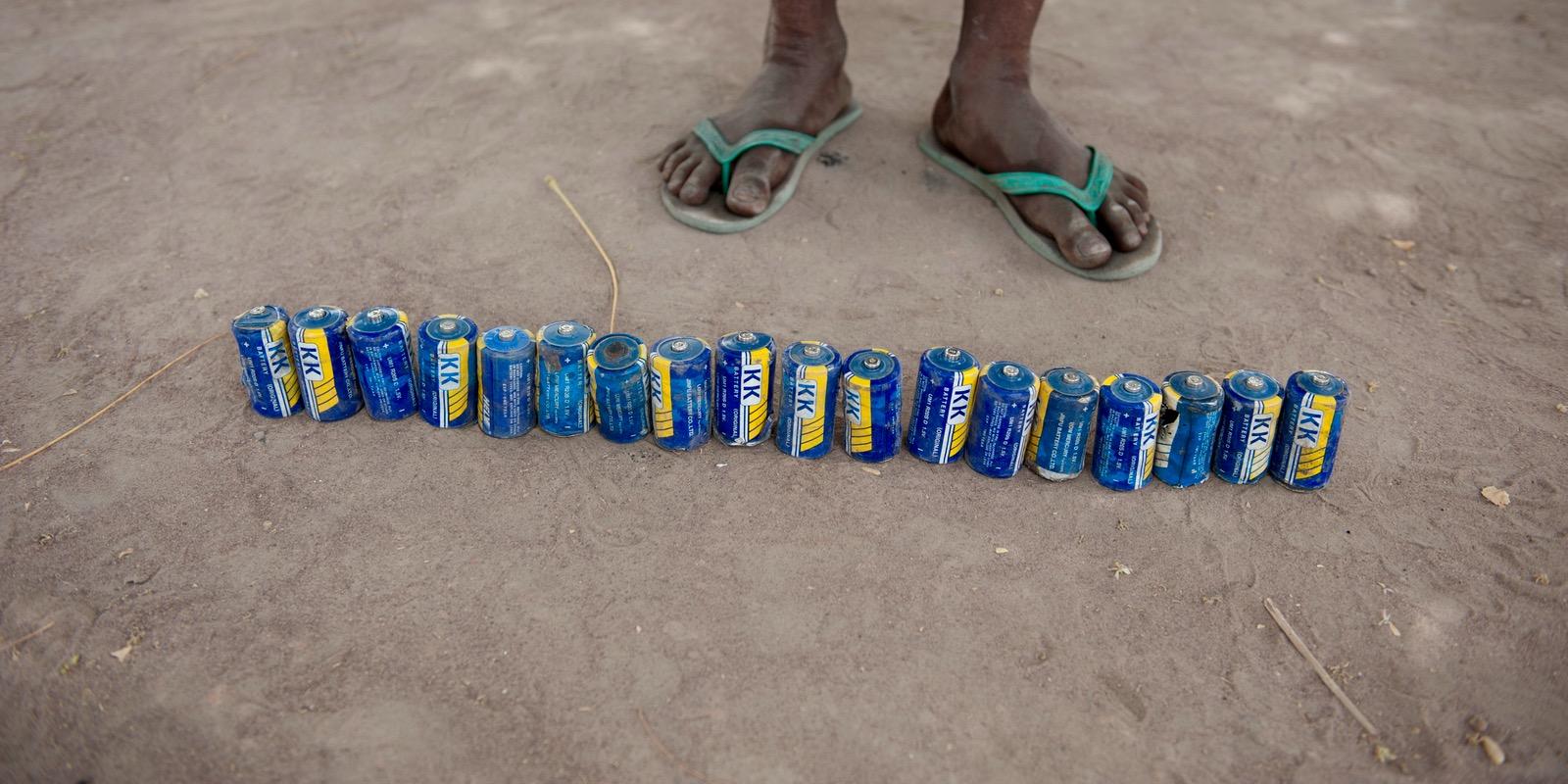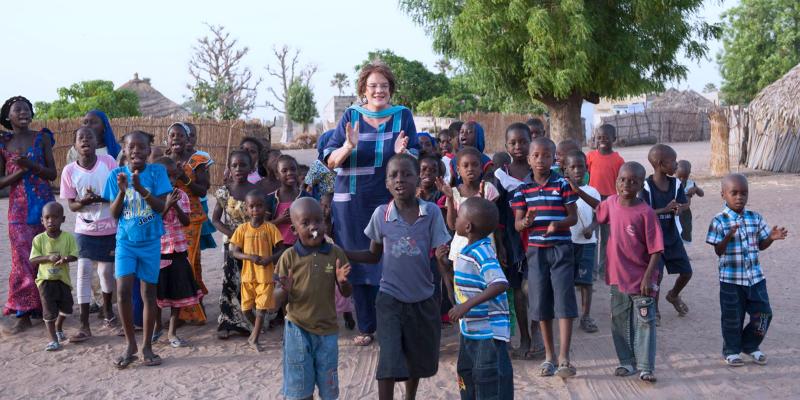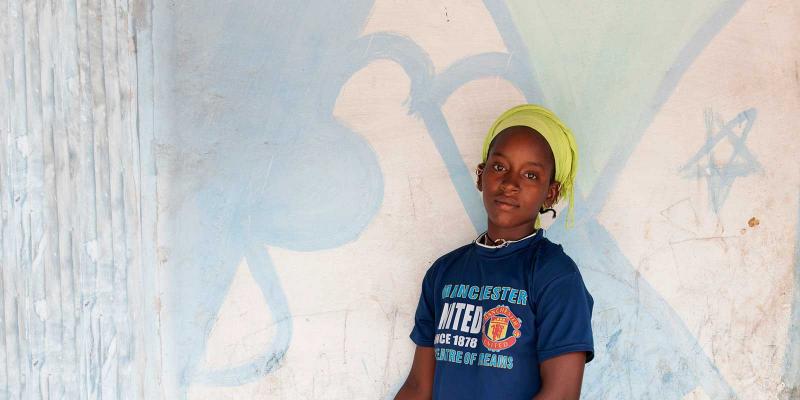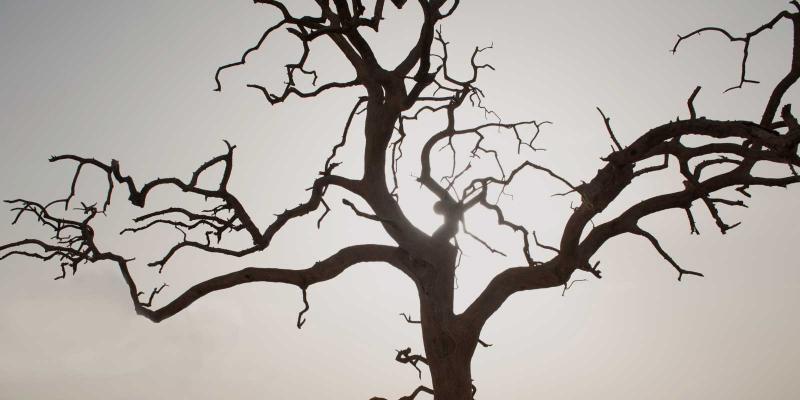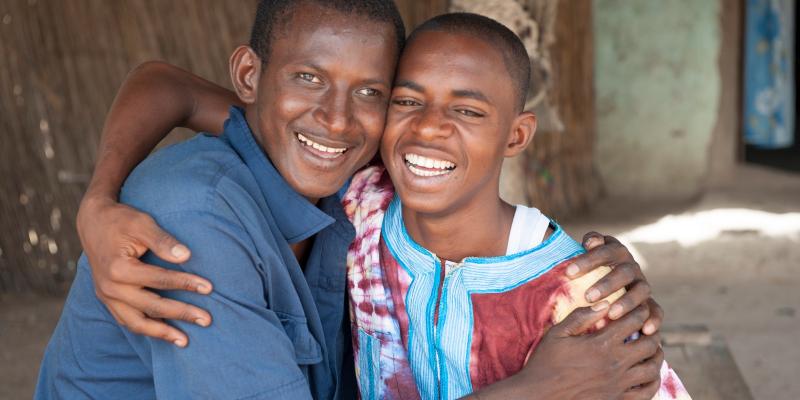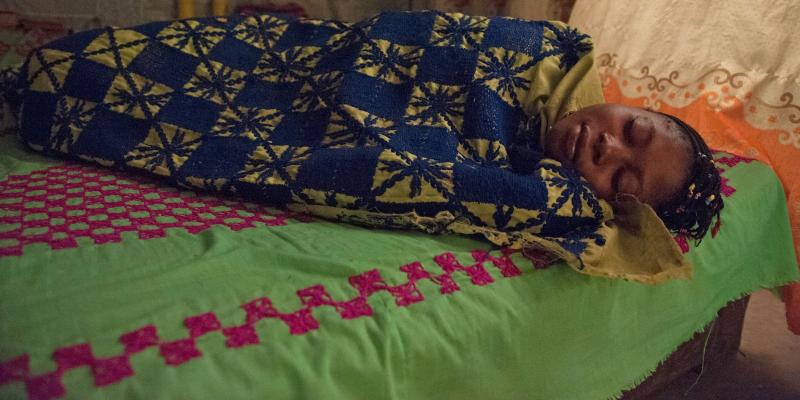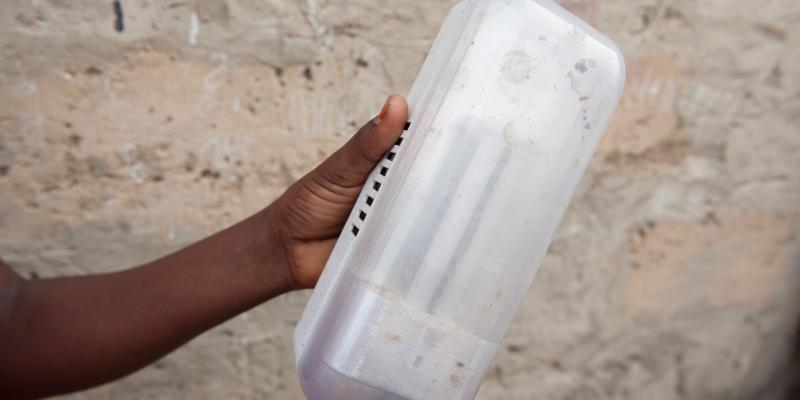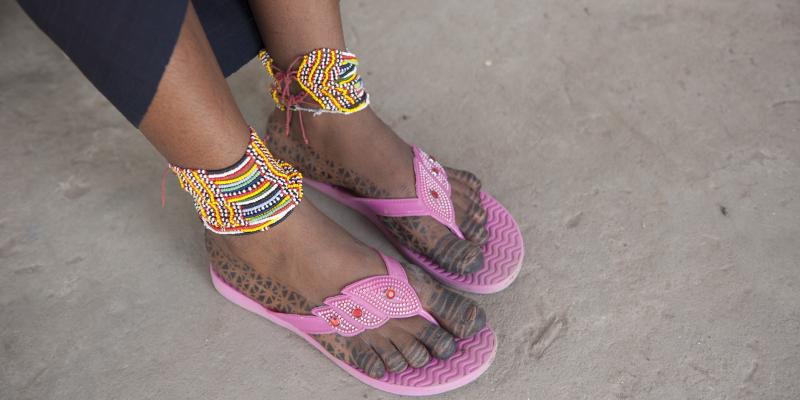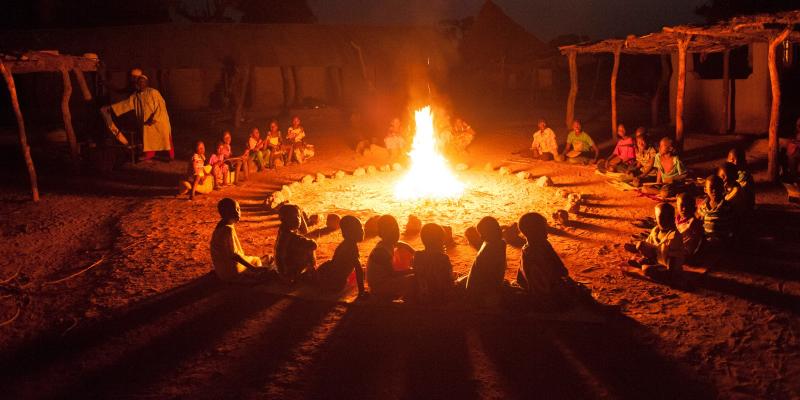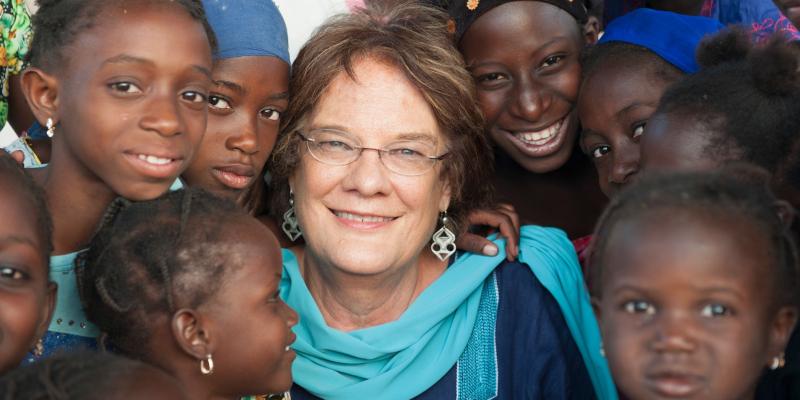The Tostan programme is based on people in villages deciding together to make life better for everyone in the village. In order for it to work, everyone needs to take part in discussing what is important. They agree that health, community, peace and respect are all needed to make life in the village as good as possible.
Everyone also gets to learn to work together to solve problems. The children learn how to talk to each other in a way that builds community – and they practice it all the time as they play! In the photo above, Gibbi, 12, gets ready to play the Battery game.
“The aim of the game is to hit your opponent’s batteries. Often lots of people want to play so we draw lots to decide who will start. Then we set up a tournament. It’s important for us children to be able to play. It makes us happy and helps us to be able to think freely.”
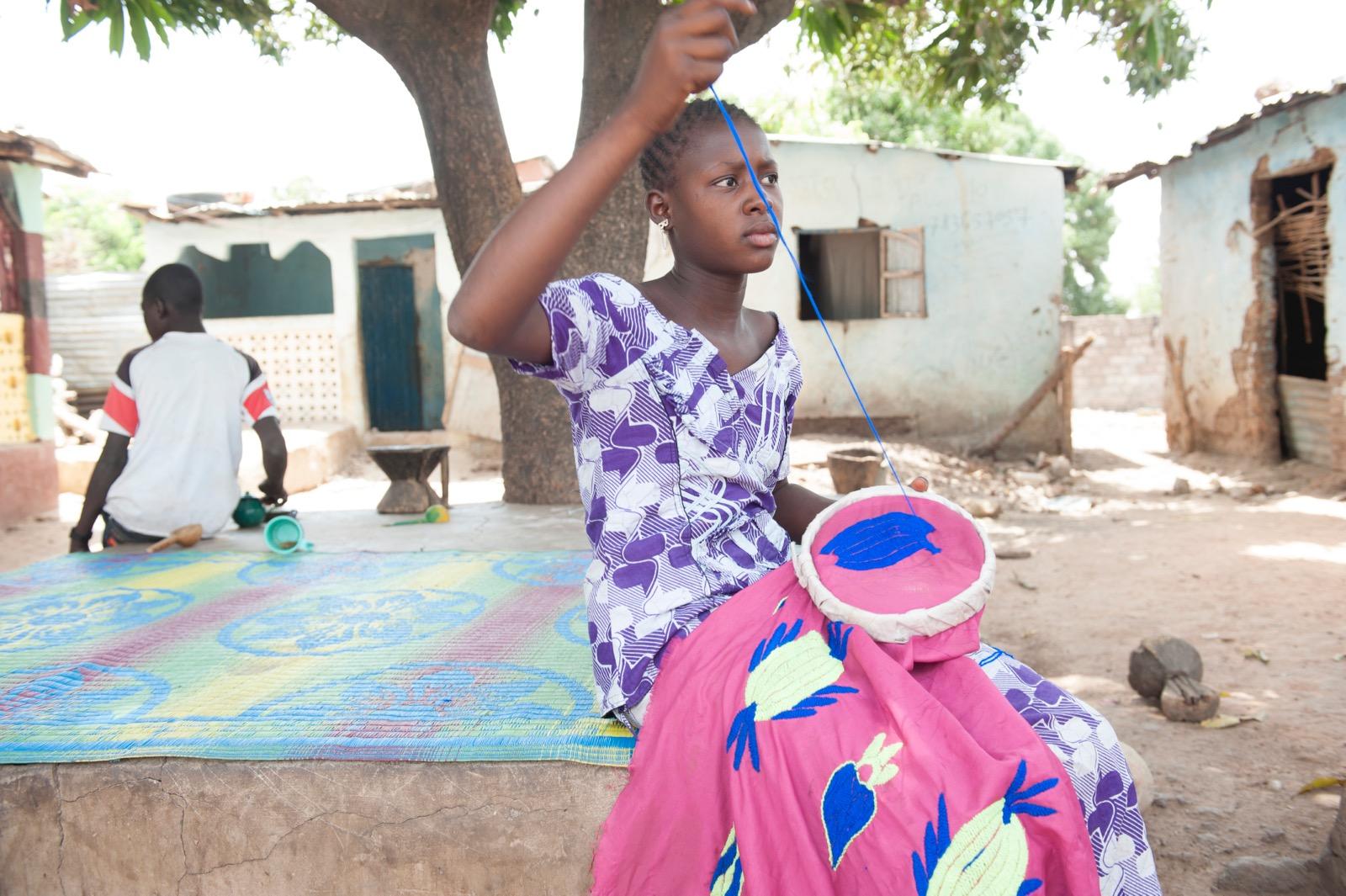
Sewing and thinking
“My mother taught me how to embroider. I usually sit and think about life here in Gambia. It’s good that we are at peace. War is most dangerous for children, because it splits families,” says Isatou, 10.
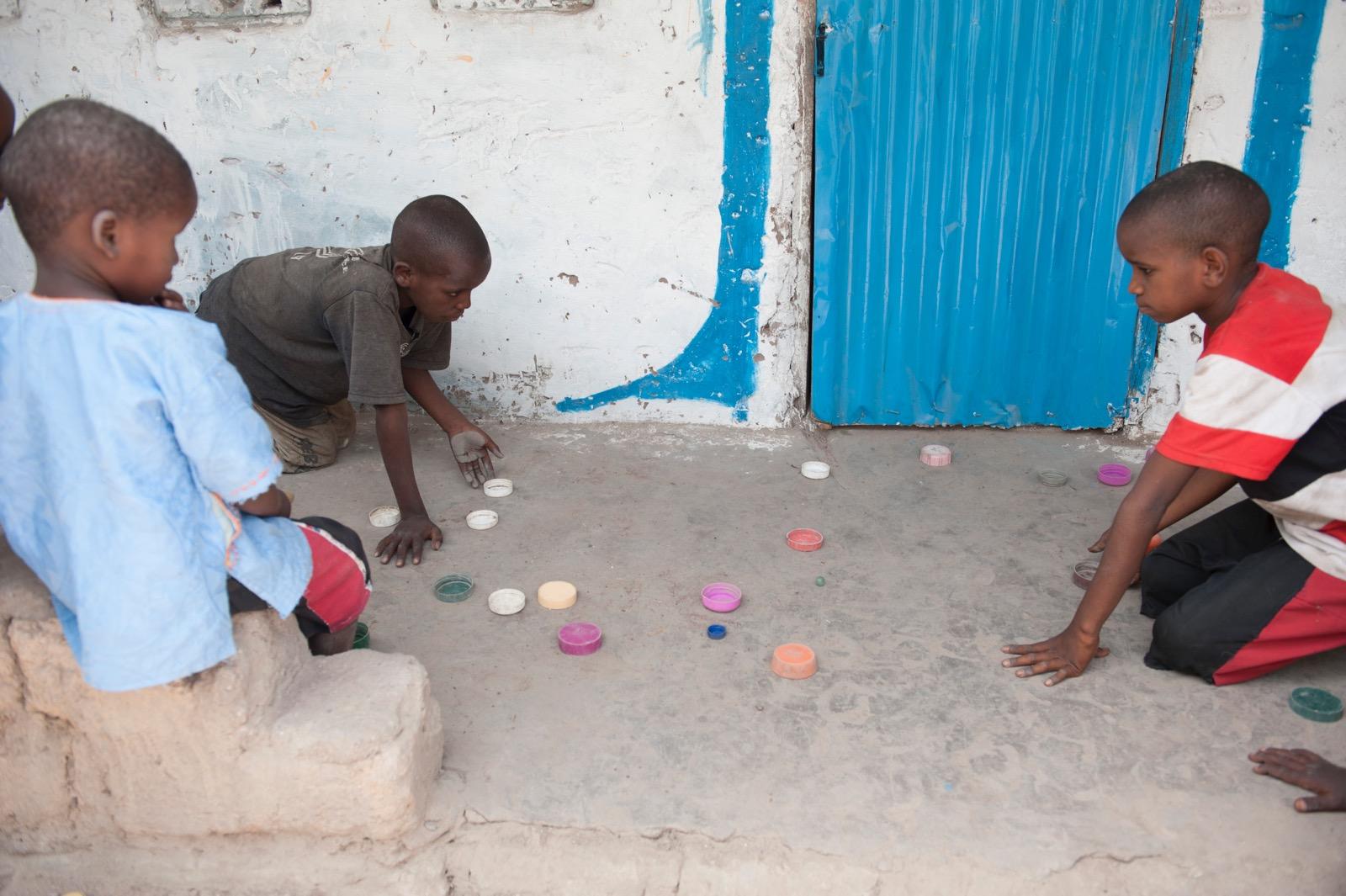
Tick-tock tactical training
“This is a football game. We get into teams and practice tactics. We learn other skills that are useful in real football too. We never do it alone – there are always people watching. We use a marble as the football. Right now I’m Real Madrid playing against Barcelona,” says Mamadou, 10.
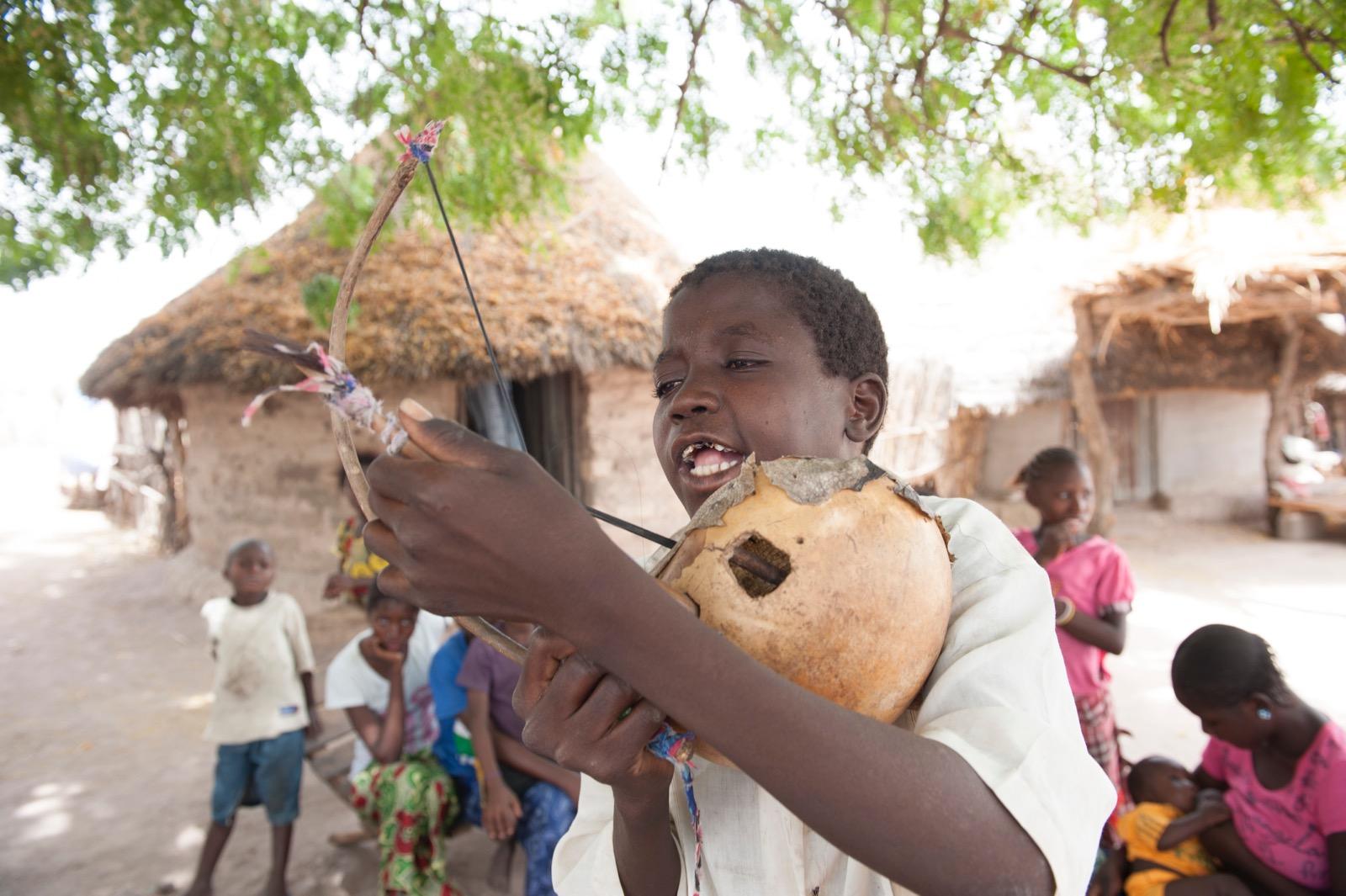
Music performance
When Ilo, 15, plays his ritti, everyone in the village gathers to listen. The ritti has strings, but it also amplifies his voice when he sings. He is singing about how a woman who is hungry can never be free.
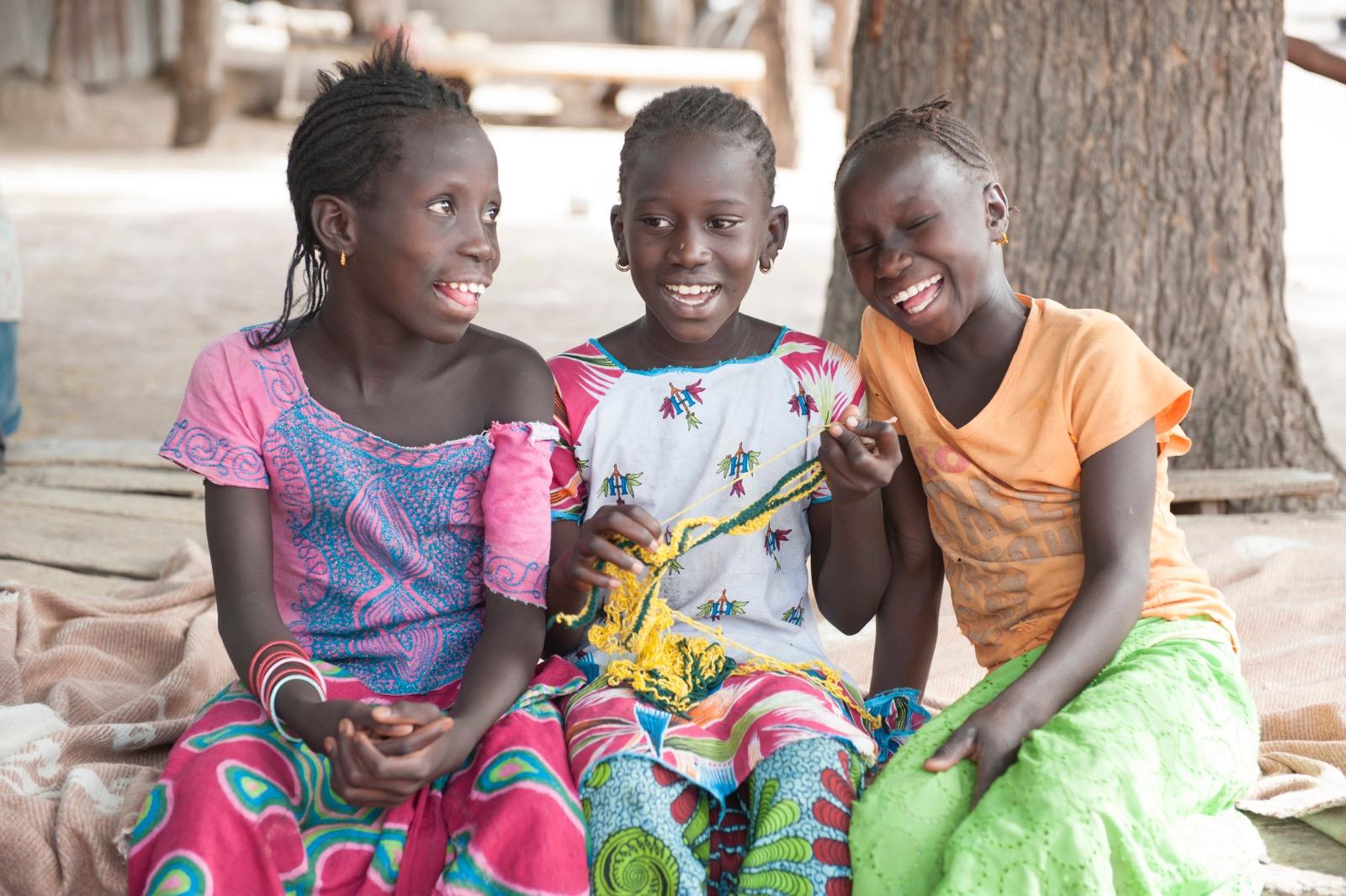
Crochet hairbands
“My mother taught me to crochet, and I do it with my friends. Tostan has taught us that we have to work hard to have a good life. We can’t just sit around waiting,” says Fanta, 7.
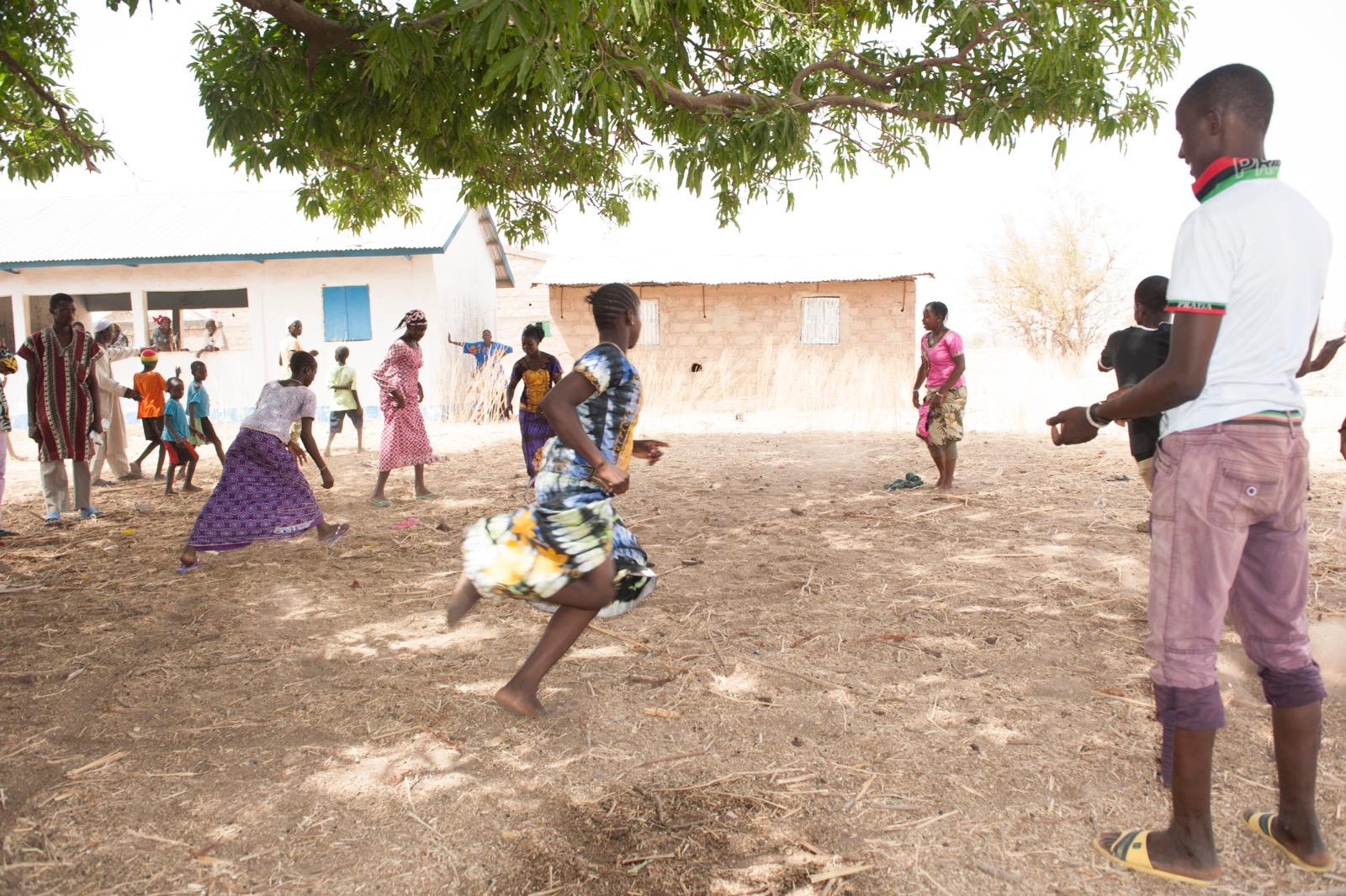
25-boxes
“This is a social game. You’re not allowed to touch one another, and if you do then you’re out. Lots of people
can play but only four people run at a time,” explains Hawh, 13.
Related stories
Långgatan 13, 647 30, Mariefred, Sweden
Phone: +46-159-129 00 • info@worldschildrensprize.org
© 2020 World’s Children’s Prize Foundation. All rights reserved. WORLD'S CHILDREN'S PRIZE®, the Foundation's logo, WORLD'S CHILDREN'S PRIZE FOR THE RIGHTS OF THE CHILD®, WORLD'S CHILDREN'S PARLIAMENT®, WORLD'S CHILDREN'S OMBUDSMAN®, WORLD'S CHILDREN'S PRESS CONFERENCE® and YOU ME EQUAL RIGHTS are service marks of the Foundation.



